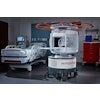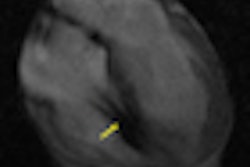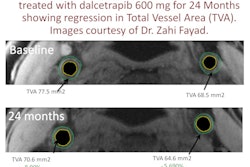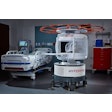Dear MRI Insider,
The U.S. Food and Drug Administration (FDA) will hold a two-day public workshop later this month on MRI safety, taking feedback from radiology's finest on how to remedy the dramatic increase in the number of accidents and adverse events in the MRI setting over the past decade.
The number of adverse events involving patients, healthcare professionals, nonmedical staff, and substantial property damage rose from 40 incidents in 2004 to 193 in 2009. And those are just the events that were reported to the FDA's Manufacturer and User Facility Device Experience database.
As an Insider subscriber, you're getting an exclusive early look at what potential disaster awaits when MRI safety guidelines are not followed, and what may help rectify the situation. Click here to learn more.
There's a definite safety theme to this edition of the MRI insider. Cardiologists at Johns Hopkins University have confirmed that MRI scanning can be done safely and effectively on patients with implanted cardiac devices by following certain protocols. Their study in the Annals of Internal Medicine describes how physicians can determine if an implanted device is safe for an MRI exam, and what to do next if it is.
Meanwhile, Canadian researchers have found that MRI for pediatric patients poses no greater physical or psychological risk than what healthy children face in their daily activities. However, performing an MRI exam with an intravenous contrast agent or sedation increases the odds of harm and could make the risks of an MRI scan unacceptably high, the authors added.
Also in this edition, researchers at Carnegie Mellon University have developed an MRI-based technique to noninvasively follow and study neural stem cells in vivo, potentially leading to new treatments for brain injuries caused by trauma, stroke, Parkinson's disease, and other neurological disorders. If researchers can better understand the molecular migratory signals that guide neuroblasts, these cells may be redirected to areas of the brain harmed by stroke or traumatic injury, thus repairing the brain, according to the study authors.
Do your patients ever report dizziness after MRI scans? Another study from Johns Hopkins University claims that feelings of vertigo could be caused by the MRI scanner's strong magnet, which pushes fluid that circulates in the inner ear's balance center to cause the sensation of free-falling in some patients. The study, published in Current Biology, also found that the condition is more prevalent with newer, high-strength MRI systems.
Be sure to stay in touch with the MRI Digital Community on a daily basis for the latest developments from around the world, and watch next month for our preview of MRI sessions at this year's annual RSNA meeting.




















